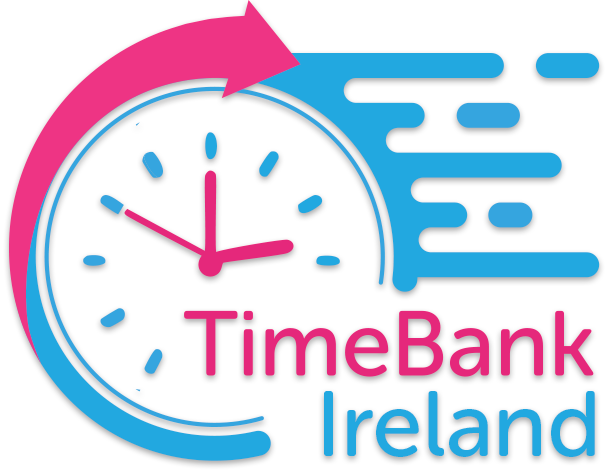Timebanking: A Comprehensive Guide to Community Exchange

Timebanking is a unique alternative monetary system that revolves around the concept of time as currency. The core principle of timebanking is mutual support, where community members exchange services based on time spent, fostering a sense of empowerment and cooperation. Edgar Cahn, the founder of TimeBanks.Org, introduced this concept as a means of creating sustainable communities and encouraging people to value and share their skills and talents.
This system functions by attributing value in “time credits” to hours spent working or providing a service for another member. When members spend an hour helping someone, they earn a time credit, which they can then use to receive assistance from others within the community. The foundation of timebanking lies in the belief that everybody’s time is equally valuable, encouraging collaboration and promoting a stronger community bond.
Timebanking offers numerous benefits, including fostering social connections, building trust among members, and promoting the effective use of skills and resources. By participating in a timebank, individuals can develop valuable relationships, share their expertise with others, and strengthen their sense of belonging to a supportive network.
Table of Contents
ToggleKey Takeaways
- Timebanking operates on a time-based currency, promoting mutual support and community involvement.
- Edgar Cahn founded TimeBanks.Org to spread timebanking and its benefits globally.
- Participating in a timebank fosters social connections and harnesses individual skills for the betterment of the community.
Understanding Timebanking
Basic Concept
Timebanking is an exchange system where time replaces traditional currency, allowing members of a community to offer their skills and services to one another. In this system, participants earn time credits for each hour of service provided, which can then be exchanged for services they may need, promoting a sense of community collaboration and balance [1].
History and Origin
Timebanking finds its roots in the labour theory of value, where the value of a commodity is determined by the amount of socially necessary labour time it takes to produce it. Developed by various socialist thinkers, this concept led to the formation of time banks as a means of creating an alternative economic model [2].
Values and Social Justice
Timebanking emphasizes values such as cooperation, trust, and reciprocity. It encourages community building by fostering social connections and mutual support, often targeting marginalized populations and focusing on their needs [3]. By using time instead of money as currency, timebanking aims to reduce economic inequality and promote social justice by increasing access to services and knowledge for every member of the community, regardless of their financial means [4].
Getting Involved
How to Join
To become a member of a timebank, start by searching for a local timebank near you. Many timebanks, like Timebank Ireland and Timebanking UK, have directories to help you find a community to join. Once you locate a suitable timebank, contact the coordinator who can guide you through the registration process and provide you with an overview of the membership requirements.
Membership Requirements
While specifics may vary between timebanks, typical membership requirements include filling out an application form and attending an orientation or induction session. The purpose of these sessions is to familiarise new members with the timebank’s procedures, guidelines, and community culture. It is essential for every member to understand and adhere to the timebank’s values and rules to ensure a positive and mutually beneficial experience for all involved.
Roles and Responsibilities
In a timebank community, members have various roles and responsibilities, which they can choose based on their skills, interests, and availability. A member can offer services such as gardening, home repairs, or teaching a language. They can then exchange earned time credits for services provided by other members, forming a supportive and collaborative network.
A crucial role within a timebank is that of the coordinator. The coordinator oversees the smooth functioning of the timebank, facilitates connections between members, and ensures that members abide by the community rules. As a member, you can also volunteer for additional responsibilities or initiatives organised by the timebank to further contribute to your community’s growth and success.
By joining a timebank and actively participating, you have the opportunity to make a positive impact in your community while gaining access to valuable services and forming lasting connections with other members.
How Timebanking Works
Skill Exchanges
Timebanking is a system that allows individuals to exchange their skills or services through a community-based network. Members offer their skills and abilities to help others, and in return, they receive assistance from others when needed. The concept is built on the principle of reciprocity, where everyone has something valuable to offer, regardless of their age or mobility.
Through timebanking, people can access a wide array of services, such as gardening, computer assistance, or even language lessons, which they would otherwise need to pay for using traditional currency.
Time Credits System
A key aspect of timebanking is the Time Credits system. The unit of exchange is the hour of work, and all skills are considered of equal value. For example, if a member spends an hour helping someone with DIY tasks, they earn a time credit, which they can then use to request an hour of assistance from another member.
This system encourages a fair and equal exchange of skills within the community, fostering a sense of cooperation and collaboration. By doing so, timebanking helps to reduce loneliness, strengthen communities, and boost mental health.
Software for Operation
To operate efficiently, Timebanking relies on software to manage transactions, track time credits, and facilitate exchanges among members. The software allows members to create profiles, list their skills, and request services from others. It also enables the community administrators to monitor exchanges and ensure that members adhere to the rules and principles of the timebanking system.
This digital infrastructure is essential to the smooth functioning of a timebank, providing a transparent and accessible platform for members to engage with one another and contribute to their community in a mutually beneficial manner.
Benefits of Timebanking
Community Connection
Timebanking fosters a sense of community by enabling individuals to connect with others in their neighbourhoods. By exchanging services, people can form new friendships and improve their overall wellbeing. This system reduces isolation and contributes to happier, healthier communities. It also promotes social inclusion as everyone has the opportunity to participate, regardless of their financial status.
Skills Sharing and Learning
Timebanking allows people to share their unique skills and knowledge with others, resulting in mutual learning experiences. Individuals can become more confident and gain improved self-esteem as they realise the value of their expertise. Timebanking opens doors to diverse learning opportunities, such as music tuition, language lessons, or crafting. As members invest their time in teaching others, they can also acquire new skills from fellow members, enriching both their lives and their communities.
Support and Care Services
Timebanking enables individuals to access support and care services that they might not have been able to afford or find otherwise. By earning time credits through providing their services, members can redeem them for support or care that they need. This system is especially beneficial for elderly or vulnerable individuals who require various services for their wellbeing. As everyone’s time is valued equally, it encourages a sense of fairness and empowers members to contribute to their community’s support network.
The Future of Timebanking
Timebanking has seen significant growth in recent years, thanks to its focus on building trust and strong communities. As more people become aware of the concept, the future of timebanking looks promising, with potential advancements in technology and increased adoption.
One aspect of timebanking’s future is the development of online platforms that make it easier for users to connect and exchange services. Online time banks can facilitate better matching of skills and needs, allowing members to efficiently browse available offers and requests within their community. Incorporating features such as user reviews, verification processes, and secure payment methods can enhance trust among users and ensure a safe and reliable experience.
Central organisations like Timebanking UK (TBUK) play a crucial role in the future of timebanking by supporting the expansion of local time banks and providing best practice guidelines. Through their continued efforts, TBUK helps local time banks tackle challenges head-on, ensuring their long-term sustainability and success.
Another essential aspect of timebanking’s future is creating a step-by-step guide for new participants. User-friendly materials can encourage more people to get involved, detailing how to join a local time bank, how to offer services, and how to request help or support in exchange for service hours. User guides can be tailored to specific demographics, ensuring a wide range of individuals can fully engage in timebanking and benefit from its community-building aspects.
As timebanking initiatives gain wider recognition, more partnerships with public services, such as local authorities and healthcare organisations, can enhance its impact. By collaborating with these entities, timebanking can help address social issues, improve service provision, and engage communities in managing public resources.
Furthermore, the introduction of a Chief Operating Officer (COO) in larger or more complex timebanking organisations can streamline operations and expand the reach of the timebank. By having a dedicated professional focusing on the organisation’s strategic direction, it can more effectively achieve its objectives and maximise its impact on members and the wider community.
In conclusion, the future of timebanking looks bright as it continues to innovate and expand, driven by a focus on trust, community support, and technological advancements. Timebanking is poised to make a significant impact on local communities, public services, and economies, and it’s clear that it will continue to evolve and respond to the needs of its members.
Frequently Asked Questions
What are the steps to set up a time bank?
To set up a time bank, start by researching time banking principles and identifying potential members within your community. Next, establish a core group of individuals to help launch and coordinate the time bank. Develop a mission statement and a set of guidelines for the operation of your time bank. Consider reaching out to Timebanking UK for resources and support to ensure your time bank is successful.
Which time banking apps are popular?
There are several popular time banking apps available that facilitate connections between time bank members. Some well-known apps include TimeRepublik, hOurworld, and Timebank.cc. However, the best choice for you may depend on your location and the time banks operating in your area.
What is International Timebanking Day?
International Timebanking Day is an annual celebration of time banking and its positive impact on communities worldwide. It is an opportunity for time banks to hold events, raise awareness, and share stories to highlight the benefits of time banking networks.
Where can I find time banks near me?
To find a time bank near you, visit the Timebanking UK directory or use a time banking app. Many apps and websites list local time banks and allow you to search by location.
What can you tell me about Timebank Ireland?
Timebank Ireland is an organisation that operates time banks throughout Ireland. With a vision of creating strong, resilient communities, Timebank Ireland connects individuals and organisations through a system of exchanging skills and services. For more information, visit their website.





